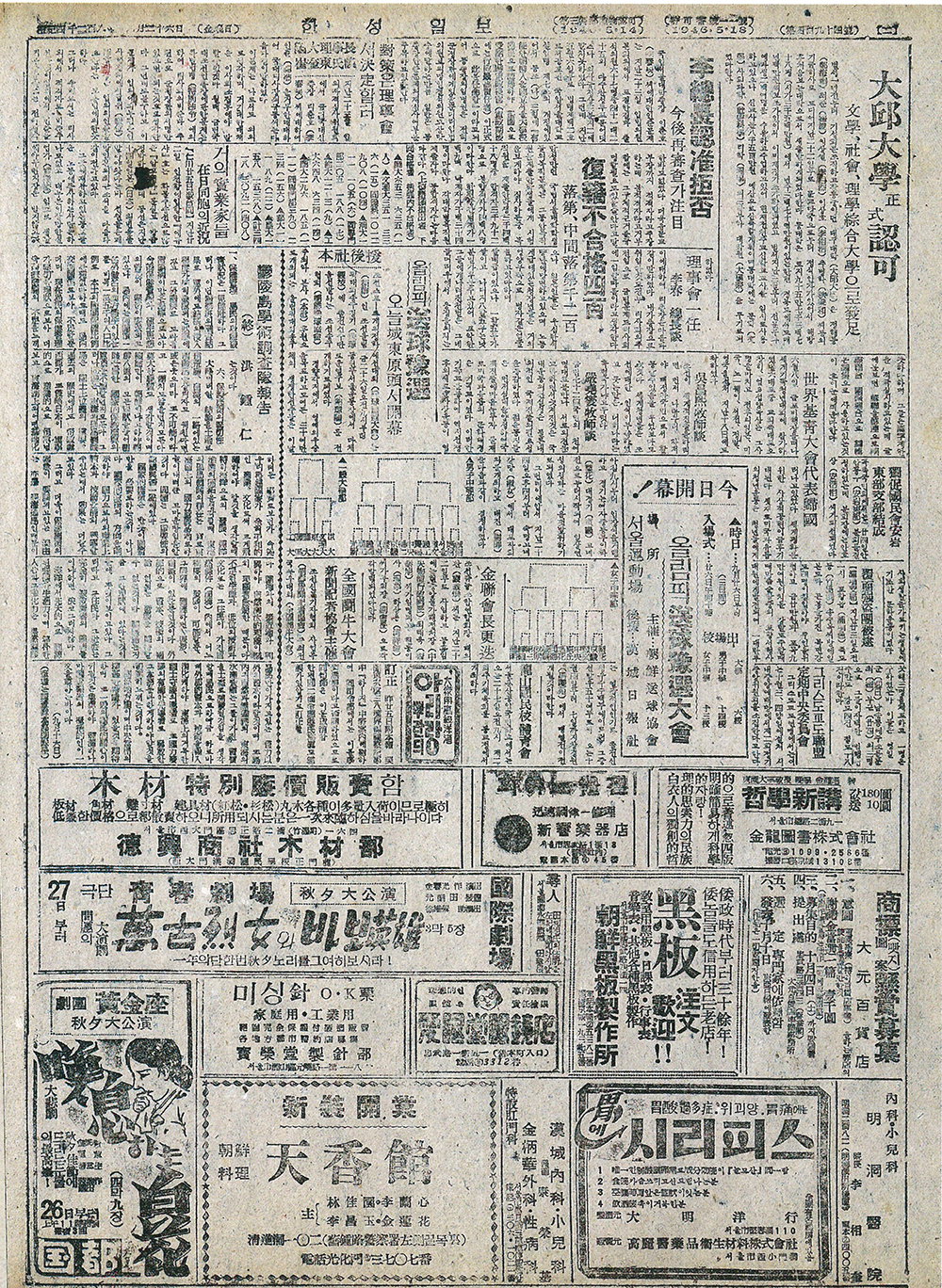Dokdo, the First Victim of Japan’s Aggression Against the Korean Peninsula
05. “Ulleungdo Scientific Expedition Report (Final) by Hong Jong-in” Hanseong Ilbo (September 26, 1947)
Hanseong Ilbo
“Ulleungdo Scientific Expedition Report (Final) by Hong Jong-in” Hanseong Ilbo (September 26, 1947)
[Translation]
“Ulleungdo Scientific Expedition Report (Final) by Hong Jong-in”
1) The residents of the island seem to be in robust health at first sight. The checkups by the Medical Unit revealed that the prevalence of tuberculosis is surprisingly and very worryingly high, and that many suffer from trachoma and stomach troubles.
This warrants urgent introduction of proper health care service and greater awareness of hygiene. The island has only one medical doctor and a few oriental doctors. It has a population of 15,000, but there is no big [difference] from the mainland in terms of the ratio of doctors to people. Still, [the ratio] is lacking considering the island’s poor transportation, and the lack of XXX is all the more apparent considering the pressing need for proper health care service.
1) Dire need for a protective policy
The following general conclusion can be made: if we cry for the rescue of Ulleungdo from land degradation and self-inflicted devastation, some may laugh or refuse to even consider it possible. In consideration of the huge costs involved, they may argue that Ulleungdo is not the only area of Korea [that needs help], and [refuse to set up] a government budget for the protection of Ulleungdo, citing all [such examples] from across the eight provinces of Korea. Nevertheless, they should consider the strategic importance of Ulleungdo, a lonely island in the East Sea, in our territory. In the past, the island was always coveted by Imperial Russia and by aggressor Japan for military and industrial purposes: they all wanted to make it their base in the East Sea. At present, our nation, in the process of reconstructing itself, must make strides only through peaceful industry and culture, and in particular, by seeking advancement through the sea and exploration of deep-sea fishery. In this regard, the nation should appreciate the existence of Ulleungdo as a blessing and a base to develop national power in the East Sea. The question is whether we recognize its importance.
Government action does not only require national treasures to be taken. Its effects can be amplified by clarifying its direction and by inducing industrial capital and technology as national power. The reason for the urgent need of protective measures is also because Ulleungdo is a remote island in the distant sea. [Accessibility] is markedly different between the island and mainland, and the natural XXX phenomena are XXX XXX. The island’s unstable production, low technology, and immature culture can only allow a certain degree of development within its natural conditions (environment), and once the limit is reached, there will only be regression and self-destruction.
No further development can possibly be expected without ongoing input of capital and technology from the outside. It is clear to anyone’s eyes that Ulleungdo is going down this road. Still, its people and society are far from totally [helpless] in XXX. Their strong innate vitality from so many years spent at sea as well as their good nature and affinity are unique assets. Considering that the natural resources of the island and the inexhaustible fishery resources in the East Sea will be sooner or later developed by the residents, there is an acute need to help them to bring in and take advantage of external capital and technology as soon as possible so that they can bravely perform their [duties] as [guardians] of our sacred territory in the East Sea and as [competent] precursors of our national development.
Due consideration is expected to be made by both the local and central governments. As greater interest by the general public is XXX, I hereby drafted a rough summary report of the expedition.
(September 16) (The author is the deputy captain of the HQ of the expedition.)
[Original Text]















